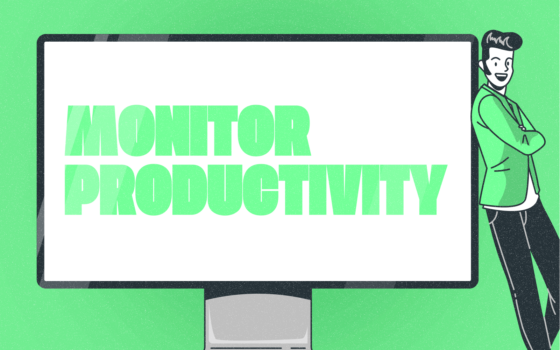Senior Professional in Human Resources (SPHR)
Understanding the Senior Professional in Human Resources (SPHR) Certification
The Senior Professional in Human Resources (SPHR) certification is a prestigious credential in the field of human resources management. It represents a high level of expertise and leadership in HR practices, strategic planning, and organizational development. Offered by the HR Certification Institute (HRCI), the SPHR is designed for seasoned HR professionals who have demonstrated mastery in their field and are ready to take on more strategic roles within their organizations.
This certification is not just a badge of honor; it's a testament to an individual's ability to align HR strategies with overall business objectives. SPHR-certified professionals are equipped to handle complex HR challenges, implement effective policies, and drive organizational success through human capital management.
Eligibility Requirements for SPHR Certification
Obtaining the SPHR certification is no small feat. The HRCI has set stringent eligibility criteria to ensure that only the most experienced and knowledgeable HR professionals can earn this credential. The requirements are based on a combination of education and professional HR experience:
- With a Master's degree or higher: Candidates must have at least four years of professional-level HR experience.
- With a Bachelor's degree: A minimum of five years of professional-level HR experience is required.
- With less than a Bachelor's degree: Candidates need at least seven years of professional-level HR experience.
It's important to note that the professional-level HR experience must be in exempt-level (professional-level) HR positions. This means that the experience should involve HR duties that require independent judgment, evaluation, and analysis.
The SPHR Exam: Structure and Content
The SPHR exam is a comprehensive assessment of an individual's knowledge and skills in various aspects of HR management. The exam consists of 150 multiple-choice questions, which must be completed within 3 hours and 15 minutes. However, it's worth noting that only 135 of these questions are scored; the remaining 15 are pretest questions used for research purposes.
The exam covers seven functional areas, each weighted differently to reflect their importance in senior-level HR roles:
- Leadership and Strategy (40%)
- Employee Relations and Engagement (16%)
- Talent Planning and Acquisition (12%)
- Learning and Development (7%)
- Total Rewards (11%)
- HR Technology (8%)
- Risk Management (6%)
The heavy emphasis on Leadership and Strategy underscores the expectation that SPHR-certified professionals will be involved in high-level decision-making and organizational planning.
Benefits of Obtaining the SPHR Certification
Earning the SPHR certification can be a game-changer for HR professionals looking to advance their careers and make a more significant impact in their organizations. Here are some key benefits:
Enhanced Credibility and Professional Recognition
The SPHR certification is widely recognized as a mark of excellence in the HR field. It demonstrates to employers, colleagues, and industry peers that you have a deep understanding of HR practices and the ability to apply this knowledge strategically. This recognition can lead to increased respect and trust from both senior management and staff.
Career Advancement Opportunities
SPHR-certified professionals often find themselves in a better position to secure senior HR roles or advance within their current organizations. The certification can be a differentiator when competing for high-level positions such as HR Director, Vice President of Human Resources, or Chief Human Resources Officer (CHRO).
Higher Earning Potential
With greater responsibility comes greater compensation. SPHR certification holders typically command higher salaries compared to their non-certified counterparts. According to various salary surveys, SPHR-certified professionals can earn up to 20% more than those without the certification.
Strategic Thinking and Business Acumen
The process of preparing for and obtaining the SPHR certification helps develop a more strategic mindset. It encourages HR professionals to think beyond day-to-day operations and consider how HR initiatives can drive business success. This broader perspective is invaluable in aligning HR strategies with organizational goals.
Networking Opportunities
Joining the ranks of SPHR-certified professionals opens doors to a network of high-level HR practitioners. This network can be a valuable resource for sharing best practices, discussing industry trends, and exploring career opportunities.
Preparing for the SPHR Exam
Success on the SPHR exam requires thorough preparation and a commitment to continuous learning. Here are some strategies to help candidates prepare effectively:
Comprehensive Study Plan
Develop a structured study plan that covers all seven functional areas of the exam. Allocate more time to the areas with higher weightage, particularly Leadership and Strategy. Create a realistic schedule that allows for consistent study over several months.
Utilize HRCI Resources
The HRCI provides a wealth of resources for exam preparation, including the SPHR Exam Content Outline, practice questions, and study guides. These materials offer insights into the exam structure and the types of questions you can expect.
Invest in Study Materials
Consider purchasing SPHR study books, online courses, or exam prep software. These resources often provide in-depth explanations of key concepts and practice tests that simulate the actual exam experience.
Join Study Groups
Collaborating with other HR professionals preparing for the SPHR can be highly beneficial. Study groups provide opportunities to discuss complex topics, share insights, and motivate each other throughout the preparation process.
Gain Practical Experience
While studying is crucial, practical experience is equally important. Seek opportunities in your current role to engage in strategic HR initiatives, policy development, and organizational planning. This hands-on experience will complement your theoretical knowledge and help you better understand the real-world applications of HR concepts.
Take Practice Exams
Regularly take full-length practice exams to assess your progress and identify areas that need more attention. This will also help you get accustomed to the exam format and improve your time management skills.
Maintaining SPHR Certification
Earning the SPHR certification is just the beginning. To maintain this credential, certified professionals must engage in ongoing professional development and recertification activities.
Recertification Requirements
SPHR certification is valid for three years. To recertify, professionals must earn 60 recertification credits within the three-year recertification cycle. These credits can be earned through various professional development activities, including:
- Continuing education (e.g., attending conferences, workshops, or webinars)
- On-the-job activities (e.g., implementing new HR programs or policies)
- Research and publishing (e.g., writing articles or books on HR topics)
- Instruction (e.g., teaching HR courses or conducting training sessions)
- Leadership (e.g., serving on HR-related boards or committees)
Alternatively, SPHR-certified professionals can choose to retake the exam to recertify.
Importance of Continuous Learning
The recertification process ensures that SPHR-certified professionals stay current with evolving HR practices, legal requirements, and industry trends. This commitment to continuous learning is essential for maintaining the high standards associated with the SPHR credential and for providing value to organizations in an ever-changing business landscape.
SPHR vs. Other HR Certifications
While the SPHR is a highly respected certification, it's not the only option for HR professionals seeking to validate their expertise. Understanding how the SPHR compares to other certifications can help individuals choose the credential that best aligns with their career goals.
SPHR vs. PHR (Professional in Human Resources)
The PHR is often considered a precursor to the SPHR. While both are offered by HRCI, the PHR is geared towards HR professionals who focus on program implementation and tactical/operational aspects of HR. The SPHR, on the other hand, is designed for strategic-level HR professionals involved in planning and policy-making.
SPHR vs. SHRM-SCP (SHRM Senior Certified Professional)
The SHRM-SCP, offered by the Society for Human Resource Management (SHRM), is another senior-level HR certification. Both the SPHR and SHRM-SCP focus on strategic and leadership aspects of HR. The main difference lies in the exam content and the organizing body. Some professionals choose to hold both certifications to demonstrate comprehensive expertise.
SPHR vs. GPHR (Global Professional in Human Resources)
For HR professionals working in international settings, the GPHR certification might be more appropriate. It focuses on cross-border HR issues and global HR strategies, while the SPHR is more centered on U.S.-based HR practices and laws.
The Future of SPHR Certification
As the HR landscape continues to evolve, so too does the SPHR certification. The HRCI regularly updates the exam content to reflect current best practices, emerging trends, and changing legal requirements. Some areas that are likely to gain increased focus in the future include:
Technology and Digital Transformation
With the rapid advancement of HR technologies, SPHR-certified professionals will need to demonstrate proficiency in leveraging AI, data analytics, and other digital tools to drive HR strategies and decision-making.
Diversity, Equity, and Inclusion (DEI)
As organizations place greater emphasis on creating inclusive workplaces, the SPHR exam may incorporate more questions related to DEI strategies and their impact on organizational culture and performance.
Remote Work and Flexible Employment Models
The shift towards remote and hybrid work arrangements is likely to influence HR policies and practices. Future SPHR exams may place greater emphasis on managing distributed workforces and developing flexible employment strategies.
Employee Well-being and Mental Health
With increasing awareness of the importance of employee well-being, SPHR-certified professionals may be expected to demonstrate knowledge of holistic wellness programs and mental health support strategies.
Conclusion
The Senior Professional in Human Resources (SPHR) certification represents the pinnacle of HR expertise and leadership. It offers HR professionals a pathway to advance their careers, increase their earning potential, and make significant contributions to their organizations' success. While obtaining the SPHR certification requires substantial effort and commitment, the benefits it provides in terms of professional recognition and strategic capability make it a worthwhile pursuit for ambitious HR practitioners.
As the business world continues to evolve, the role of HR in shaping organizational strategy becomes increasingly crucial. SPHR-certified professionals are well-positioned to lead this charge, armed with a comprehensive understanding of HR best practices and the ability to align human capital management with overarching business objectives.
For those considering the SPHR certification, it's important to assess your career goals, experience level, and readiness for a strategic HR role. The journey to becoming SPHR certified is challenging but rewarding, offering a clear path to professional growth and the opportunity to make a lasting impact in the field of human resources.
Ultimately, the SPHR certification is more than just a credential; it's a commitment to excellence in HR practice and a testament to an individual's dedication to the profession. As organizations continue to recognize the value of strategic HR leadership, SPHR-certified professionals will undoubtedly play a pivotal role in shaping the future of work and driving business success.


